Our skin’s health and appearance depend on the skin barrier’s functionality. This defensive layer stands between our internal organs and the outside world, protecting us from harmful elements.
This article explains the role of the skin barrier, what weakens it, and how to protect and repair it.

What Is the Skin Barrier?
The skin barrier is the skin’s outermost layer, also called the stratum corneum. It acts as a shield between our internal organs and the environment. The skin barrier also plays a crucial role in regulating transepidermal water loss, preventing excessive evaporation of water through the skin.
This layer is primarily composed of dead skin cells (corneocytes) embedded in an intercellular lipid matrix consisting of fatty acids, ceramides, and cholesterol. The structural protein filaggrin forms in deeper epidermal layers but migrates to the stratum corneum, where it breaks down into natural moisturizing factors to maintain skin hydration. Additionally, the skin barrier contains antimicrobial peptides, which kill harmful microorganisms and improve the immune response.
The skin barrier is made up of several components that work together to protect the body from external factors. It includes:
- Microbiome/Skin flora - The collection of microorganisms (microbiota) that live on the skin. They play a crucial role in supporting the skin barrier by maintaining a balanced acidic pH, producing antimicrobial substances to fight off pathogens, regulating the shedding of dead skin cells, and by actively participating in the production of lipids that help strengthen the skin barrier.
- Acid mantle - A thin, protective layer formed by the combination of water, sweat, and sebum. Its slightly acidic pH, typically between 4.5 and 5.5, acts as a defense barrier against harmful bacteria and environmental damage. A healthy skin microbiome maintains an acidity level of around 4.7–5, which helps prevent the overgrowth of harmful bacteria. When the skin’s pH becomes too high (alkaline), the acid mantle weakens, making the skin barrier less effective. This can lead to moisture loss, inflammation, and bacterial imbalances, increasing the risk of irritation and infections.
- Lipid layer - A thin layer of lipids (fats) primarily composed of ceramides, cholesterol, and fatty acids. These lipids are organized into a layered structure that helps to prevent water loss from the skin and protect against harmful substances and infections.
Every part of the epidermis plays a vital role in maintaining the skin’s natural protective function.
What Does the Skin Barrier Do?
The skin barrier is our body’s first line of defense against external and internal stressors. It has several key functions:
- Protection from harmful environmental elements (UV, pollution, toxins, allergens).
- Defense against microorganisms and infections.
- Facilitating skin regeneration and wound healing.
- Modulating the immune response.
- Limiting water loss and preventing dehydration.
- Regulating body temperature through sweating.
- Helping to maintain smooth and elastic skin.
- Enabling sensory perception through neurons in the skin that respond to touch and temperature.
What Weakens the Skin Barrier?
Various factors weaken and damage the skin barrier. They include:
- UV damage
- Environmental pollutants
- Exposure to allergens
- Physical trauma
- Dry air
- Low humidity
- Extreme weather (hot or cold)
- Using overly hot water
- Harsh skincare ingredients
- Over-exfoliation
- Aging
- Genetics (e.g., filaggrin deficiency)
- Stress
- Lack of sleep
- Alcohol and nicotine
- High intake of saturated fats, refined sugars, certain additives, etc.
How Do I Tell if My Skin Barrier Is Damaged?
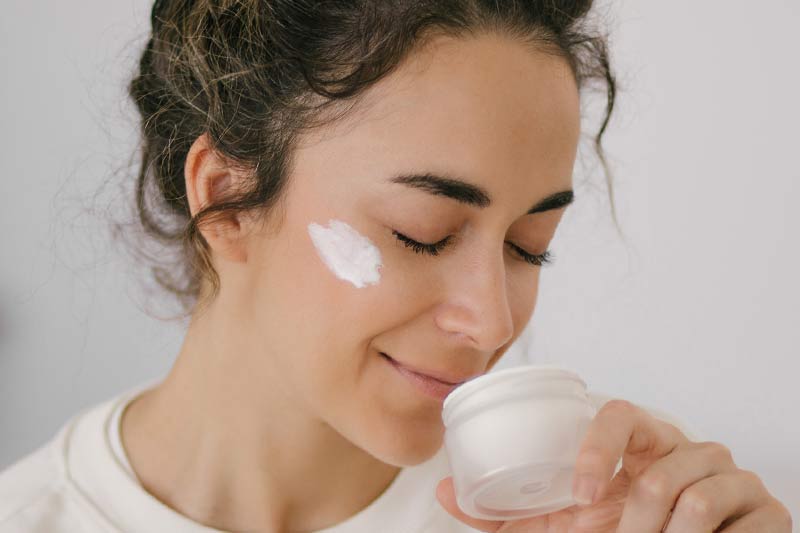
Dry or dehydrated skin is the first sign of a damaged skin barrier. Dehydration can lead to other dermatological concerns, including:
- Redness
- Itching
- Flaky or scaly skin
- Rough patches
- Discoloration
- Sensitive, inflamed, or painful areas
- Loss of skin elasticity
- Wrinkles
More severe conditions arising from dry skin and a damaged skin barrier include:
How to Protect the Skin Barrier?
Protecting the skin barrier helps prevent premature skin aging and more severe medical concerns, such as chronic infections, dermatitis, and even asthma. Adequate and consistent skin care is central to preserving the skin’s function and glow.
Gentle Cleansers
Cleansing helps remove impurities from the skin’s surface, including dirt, dead skin cells, excess sebum, and makeup. However, products with harsh chemicals like sulfates and parabens strip the skin of natural oils, disturbing sebum production and thinning the skin barrier.
Wash your face twice daily with a gentle cleanser formulated with a slightly acidic pH value resembling that of our skin. The ideal cleanser has a pH range between 4.5 and 5.5. It will effectively cleanse the skin without damaging the microbiome. Use lukewarm water and gently tap the skin with a towel instead of rubbing it.
Vibrant Cleanse contains probiotic Lactococcus ferment lysate, a probiotic which positively influences both the speed and quality of epidermal growth, resulting in better barrier function. It increases skin tone and elasticity, minimizing wrinkles, providing deep hydration, and increasing cell turnover. It also repairs UV-induced damage, protecting your skin against photoaging.
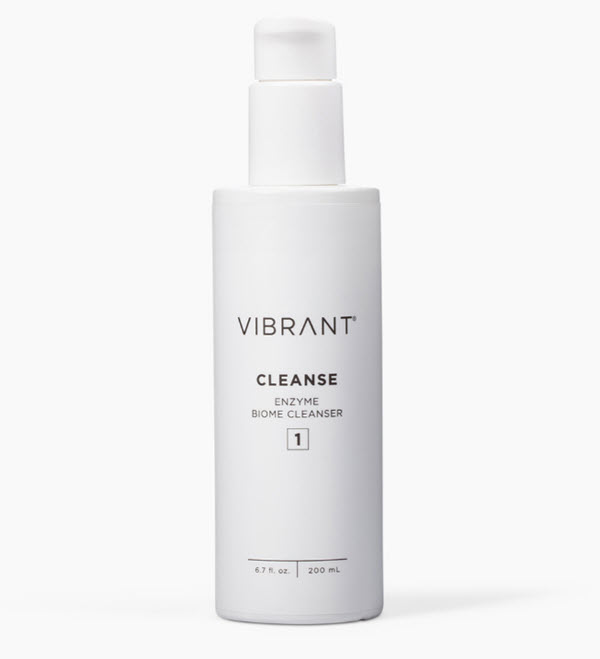
iS Clinical Cream Cleanser is an established classic designed for people with dry or sensitive skin and those who want to provide rich nourishment and protection to their epidermal barrier.
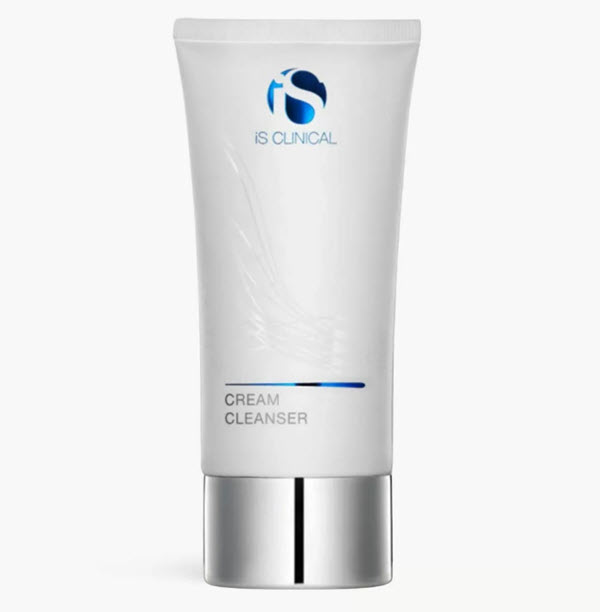
Barrier-Enhancing Moisturizers
Moisturizing is a crucial step in the daily skincare routine. Quality moisturizers contain barrier-repairing ingredients, such as ceramides and humectants. They mimic the skin’s hydrating function, pulling moisture from deeper skin layers into the epidermis and preventing water loss.
Some of the best humectants include:
- Beta-glucan
- Glycerin
- Hyaluronic acid
- Ceramides
- Panthenol
- Fatty acids
- Urea
- Gotu kola (Centella asiatica)
- Phosphatidylcholine
Vibrant Restore is a nourishing moisturizer formulated with a harmonious blend of prebiotics (bisabolol and beta-glucan), probiotics (Lactobacillus and Lactobacillus ferment), potent antioxidants (niacinamide), and soothing botanicals (chamomile). Madecassoside, well known for its powerful anti-inflammatory effects, improves the skin’s natural barrier function and promotes moisture retention.
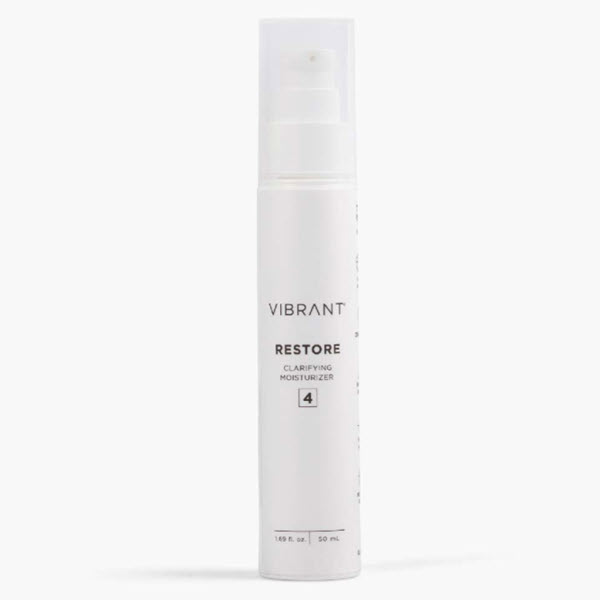
Vibrant Desert Vibe is suitable for all skin types, providing relief from dryness and irritation, and defending against free radicals. It contains active ingredients that support the skin barrier and promote collagen production, including gotu kola, prickly pear, snow mushroom, and beta-glucan.
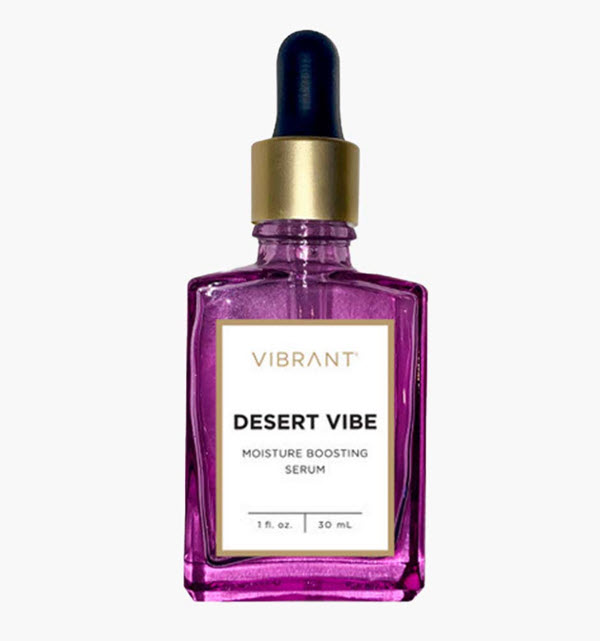
Microbiome-Friendly Skincare
Topical microbiome skincare containing prebiotics, probiotics, and postbiotics improves skin barrier function because it helps to maintain a balanced skin microbiome. Vibrant’s new line of microbiome-friendly products are formulated with potent ingredients that support barrier health and improve related skin concerns.
Vibrant C Serum is a powerhouse of active ingredients that help restore skin barrier function. Vitamin C and glutathione provide strong antioxidant protection, Lactobacillus ferment lysate (probiotic) keeps the microbiome in balance, and acetyl hydroxyproline promotes ceramide synthesis, increasing hydration. Phosphatidylcholine mimics the natural lipids present in the skin's outermost layer, helping to retain moisture and protect the skin from environmental stressors.
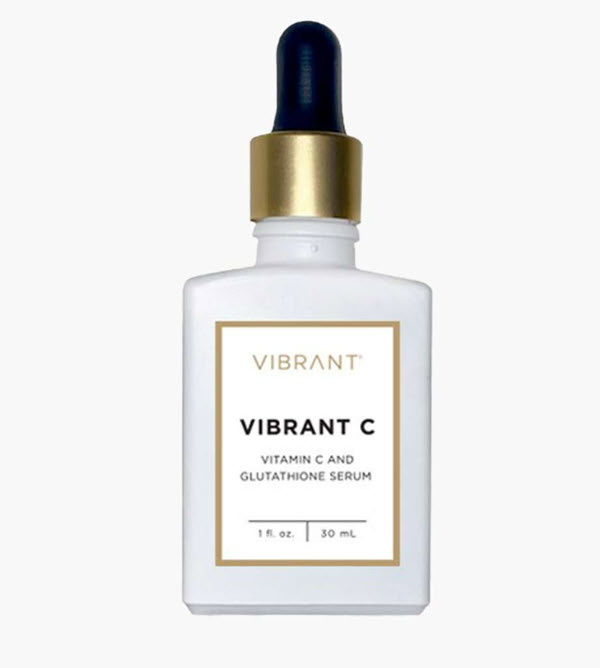
Natural Oils
People with especially dry skin may want to add a layer of hydration with a natural oil containing occlusive ingredients – those that seal in moisture on the skin’s surface, preventing it from escaping. High-quality occlusive ingredients include jojoba, argan, safflower, avocado, and coconut oil.
Osmosis MD Nourish Avocado Facial Oil deeply hydrates the skin and protects it from environmental aggressors, helping to maintain the skin’s suppleness and glow.
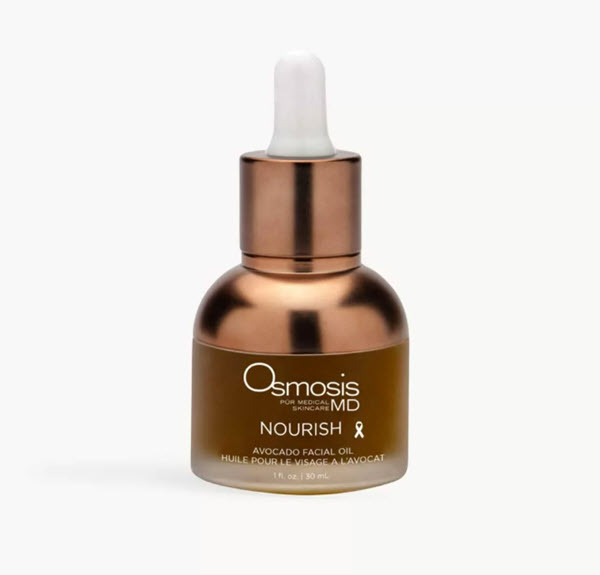
Sunscreen
Sunscreen is the ultimate skincare product because it blocks UV radiation, the primary cause of skin damage. Experts recommend applying some every day, even in winter, to reduce the risk of skin barrier damage, premature aging, and skin diseases (including cancer).
Look for a broad-spectrum, SPF 30+ sunscreen with physical sun-blocking ingredients, such as zinc oxide or titanium dioxide. Apply it as the last step in your daytime skincare regimen. Avoid the sun in peak hours, but if this is not possible, reapply sunscreen every two hours.
Alastin Hydratint Pro Mineral Sunscreen is an award-winning, mineral-based sunscreen that provides strong protection against harmful UV radiation thanks to ingredients such asphytoene and phytofluene (powerful antioxidants), Asteriscus graveolens extract, hydroxymethoxyphenyl decanone (potent hyaluronic acid booster, antioxidant, and anti-irritant), and ectoin.
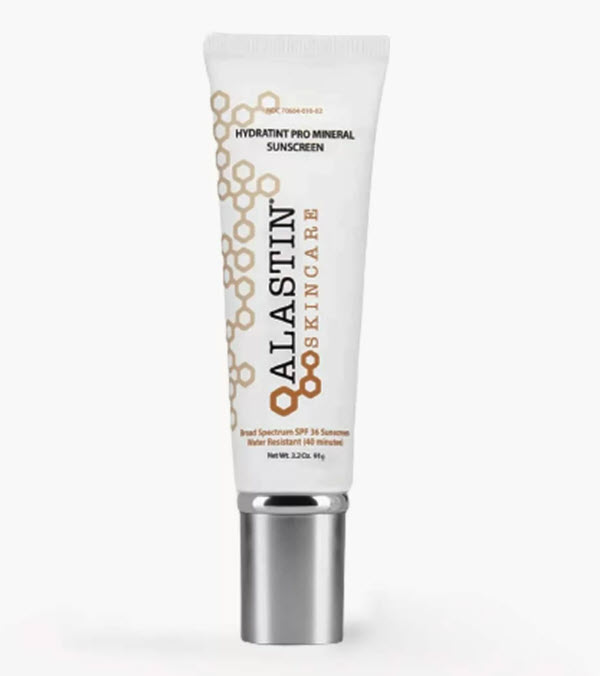
Note: Read our ultimate skincare guide for more tips on how to nourish and protect your skin.
How Do I Fix My Skin Barrier?
Patients whose skin barrier is already compromised have several treatment options. It is best to consult a skin professional who will examine the patient’s skin and recommend an effective strategy. This way, patients avoid the potential dangers of using treatments and products that may further damage their protective barrier.
Skincare Products
Microbiome cosmetics are gaining recognition as a potent aid in restoring necessary moisture and supporting the lipid barrier. These skincare products contain probiotics, prebiotics, and postbiotics, which improve your microbiota and strengthen the skin barrier. They help balance oil production, reduce acne, minimize skin inflammation, stimulate collagen production, decrease wrinkles, and help manage more severe skin conditions, such as psoriasis and eczema.
Other ingredients that strengthen the skin barrier and provide various cosmetic benefits include:
- Antioxidants such as vitamin C, glutathione, and niacinamide
- Lipid-mimicking ingredients like jojoba oil and squalane
- Botanicals with soothing, anti-inflammatory effects, such as chamomile extract, willow herb, etc.
Supplements
Dietary supplements also help reduce transepidermal water loss, increase hydration, and help repair a weakened skin barrier. The most effective products include vitamin D, omega-3 fatty acids, prebiotics with probiotics, powerful antioxidants vitamin C and E, collagen peptides, and more.
Vibrant Collagen is a unique blend of three patented collagen peptides that promote collagen synthesis, increase skin hydration, accelerate barrier repair, and improve skin elasticity.
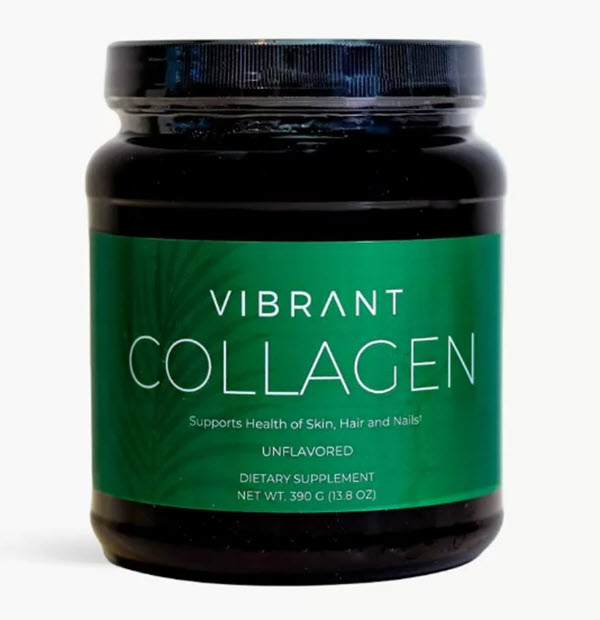
Vibrant Biome also benefits patients with poor gut health and impaired epidermal barrier function. It helps increase the balance of beneficial intestinal bacteria, improving various skin concerns related to reduced lipid function and dehydration.
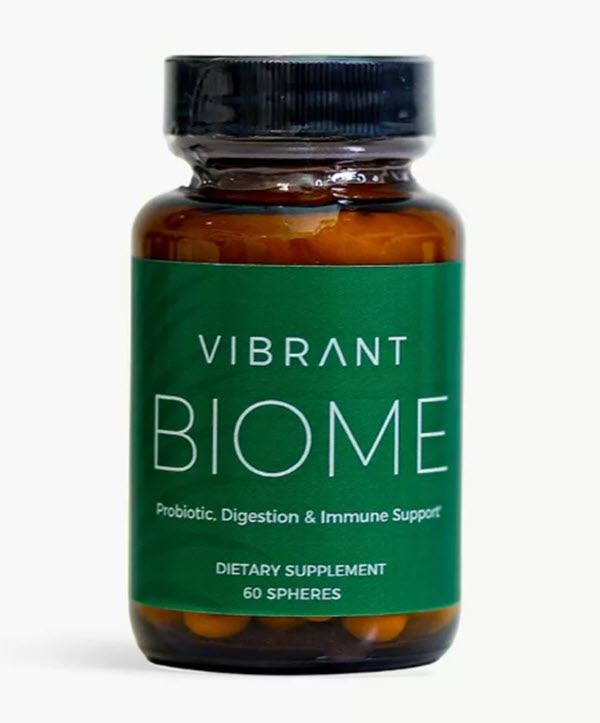
Medications
Chronic, untreated skin barrier damage leads to more severe skin conditions – atopic dermatitis, rosacea, inflammatory acne, and psoriasis. Dermatologists prescribe oral and topical medications to alleviate symptoms, such as swelling, itching, redness, inflammation, and pimples. Drugs include topical retinoids, steroid creams, alpha and beta blockers, NSAIDs, immunosuppressants, antibiotics, antihistamines, etc.
Cosmetic Treatments
Certain cosmetic treatments can help reverse premature aging signs stemming from weakened barrier function. Patients should avoid treatments involving harsh chemicals, such as chemical peels, or more invasive methods like microneedling. The following procedures are gentle, reduce inflammation, and build collagen, helping to strengthen the skin barrier.
- LED light therapy – It uses UV light to stimulate the natural healing process and improve symptoms of dry, compromised skin.
- Oxygen facial – Infuses the skin with bursts of oxygen, enhancing blood circulation, nutrient delivery to the skin, collagen and elastin synthesis, and cell turnover, contributing to a healthier skin barrier.
- Holistic facial – Aims to address the root causes of skin concerns rather than just treating surface symptoms. It uses a personalized approach with active ingredients designed to work naturally with the skin’s cells. It also considers factors like lifestyle and internal health that may contribute to skin conditions.
Contact a skilled skin professional for a customized treatment plan based on your unique skin condition.
Lifestyle Modifications
Gentle, moisturizing skincare products and other barrier-enhancing treatments give the best results when combined with healthy lifestyle habits. These include:
- Proper nutrition – Limit or eliminate foods that are high in sugar, saturated fats, salt, and additives. Eat more anti-inflammatory foods like antioxidant-rich fruits and vegetables, nuts and seeds rich in healthy fats, lean protein, and whole grains. Include fermented foods with probiotics and prebiotics to improve gut health – kefir, yogurt, kimchi, sauerkraut, etc.
- Adequate water intake – Drink at least eight cups of water daily to ensure proper hydration from within.
- No alcohol and nicotine – Alcohol is a natural diuretic, dehydrating the skin and disrupting the natural lipid barrier. Nicotine also weakens the skin barrier, lowering nutrient and oxygen delivery, increasing inflammation, and impeding wound healing. It is best to avoid both for overall health.
- Stress relief – Stress significantly impacts various factors affecting the skin, including hormonal balance, gut health, sleep pattern, and inflammatory response. Employ stress-relieving tactics, such as moderate physical activity, relaxing hobbies, meditation, etc.
- Enough sleep – Prolonged sleep deprivation increases transepidermal water loss and dehydration, damaging skin integrity. Health experts recommend seven to nine hours of undisturbed sleep at night to restore natural barrier function and improve associated skin concerns.
How Long Does It Take to Repair a Weakened Skin Barrier?
Everyone’s skin is different, so it isn’t easy to determine the duration of skin barrier repair. Skin experts estimate a period of several weeks for minor damage to several months for more severe skin problems. The key to seeing an improvement lies in consistency in employing adequate skin care and improving lifestyle habits.
Can the Skin Barrier Get Damaged for Good?
Some factors can permanently damage the skin, including aging, genetic disorders, physical injury, and prolonged exposure to toxic chemicals. Cosmetic treatments and skincare products may improve barrier function but not fully restore it.
What Not to Use When Repairing the Skin Barrier?
Skin barrier repair requires a gentle approach and consistent use of hydrating and soothing products. Don’t use cosmetics with harsh ingredients, such as:
- Parabens and other preservatives
- Artificial fragrances
- Sulfates
- Alcohol (ethanol)
- Petrolatum
Also, refrain from ingredients with an alkaline pH value (above 7), retinol, alpha and beta hydroxy acids, salicylic acid, and high concentrations of potent antioxidants like vitamin C. They provide various benefits to the skin but may exacerbate symptoms of a disrupted skin barrier. Start using them again after redness, flaking, itching, and inflammation subside.
Conclusion
The skin barrier is our body’s vital defensive layer. Various skincare treatments are available for compromised barrier function, but some damage may be irreversible. Be consistent with daily hydration, adequate skin care, and healthy lifestyle habits to prevent skin barrier damage, protect your skin’s health, and maintain a youthful glow.


